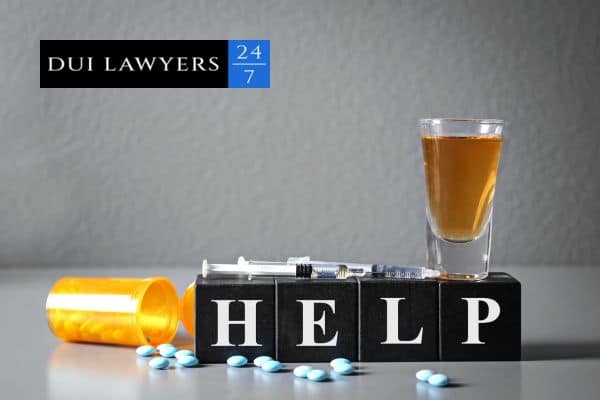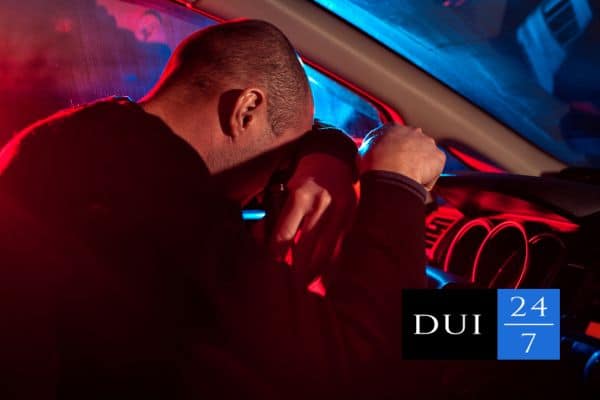If you have been arrested for Driving Under the Influence in Illinois, you may be required to attend an Alcohol/Drug and Risk Education Program (ADREP) and or complete a fixed number of hours of community service. This program is designed to help drivers caught by a police officer driving with an over-the-limit blood alcohol content learn more about the risks associated with driving while impaired by alcohol or drugs. It also serves as a deterrent to adding future drinking and driving offenses and harsher penalties to your driving record.
In Illinois, if you are found guilty through chemical testing of a DUI, you can face criminal charges and will be required to attend an ADREP course as part of your sentence. The course runs for several hours per day and typically lasts 12 hours and is offered at various locations throughout the state. The cost for the course varies depending on the location but typically costs several hundred dollars.
For more information, contact our experienced DUI attorneys at DUI Lawyers 24/7 at (847)-999-7616 to set up a FREE consultation!
What Is a DUI Class?
Attending an alcohol & DUI class is a crucial step for individuals who have been convicted of drunk or impaired driving. The classes help offenders understand the consequences and criminal offenses of their actions and learn skills to prevent additional penalties for drunk driving. Trained professionals discuss the legal, physical, and emotional ramifications of an alcohol or drug-related driving offense. The course teaches attendees how to enhance their driving abilities, avoid behaviors that may lead to the suspension of driving privileges, and maintain a clean driving record.

Most DUI classes are required as part of an aftercare program for drunk driving charges, probation violations, or motor vehicle accidents, but some choose to take them voluntarily. Regular attendance by drunk driving offenders is necessary to complete the course hours. To reinstate driving privileges, completion of a proof of a drunk driving course is required under drunk driving laws to potentially reduce or eliminate suspension. These steps aid in recovery after an unfortunate episode of intoxicated driving and help avoid subsequent offenses.
Court
To resolve drunk driving crimes, one must attend court after being arrested for driving under the influence of alcohol or drugs. Certain states have efficient legal systems for handling non-violent cases of driving under the influence of drugs. These courts don't have violent criminal record offenses, allowing them to move through proceedings faster and are considered minimal risk. Expert attorneys and judges in DUIs and substance-related crimes provide efficient and timely assistance for potential penalties.
However, severe drunk driver offenses causing serious bodily harm or death cannot be dealt with by a court. These incidents will have to be reviewed by a higher court. In court, the judge reviews all evidence before determining guilt or innocence and deciding the type of sentence to be given if found guilty. This could vary from entering a plea to displaying compelling mitigating evidence proving innocence.
Court-Ordered Classes
Instead of facing prison time, first-time DUI offenders can take court-ordered alcohol treatment program classes. The classes offer outpatient treatment programs, medical care, and court supervision to address substance abuse. They can include inpatient or outpatient care, individual therapy, and DUI risk education classes. Implementing legal consequences and offering reasonable accommodation programs can improve success rates for individuals facing addiction challenges.
DUI Class Structure
Enrollment in an alcohol awareness class involves a comprehensive process. The curriculum covers the physical and mental effects of alcohol, and participants assess their intoxication levels and risk of future offenses. Interactive classes with dialogue activities are ideal.
Treatment programs typically consist of classroom-based instruction, evidence-based therapy sessions, and follow-up meetings. Traditional alcohol treatment practices are also covered.
1. DUI Evaluation
Getting a DUI drug evaluation is important for those charged with driving under the influence. During the evaluation procedure, a substance use professional collects personal information such as underlying conditions and details about the arrest to determine treatment needs and risk level. The information gathered will not be utilized for legal purposes, but instead to create a care plan, as it is protected under your constitutional rights.

Evaluators use various assessment tools such as AUDIT-C or SAMHSA-Versions screener to assess drug impairment levels and mental health conditions. Chemical tests are also used to measure any signs of blood alcohol concentration or chemical compounds in the bloodstream that could indicate intoxication levels and lead to a conviction.
2. Instruction
Completing DUI evaluations is important for starting the journey to sobriety and making safe decisions on the road. Classes are structured to meet educational requirements and promote collaborative learning through small group sessions. State-approved DUI classes are interactive and include educational movies, guest speakers, and exams to test understanding.
Trained staff members facilitate discussions and education on binge drinking and ways to avoid drinking and driving. The lessons cover the effects of substances on driving safety and encourage individuals to make responsible decisions about drinking limits. The goal is to increase safety on the roads through education and understanding.
3. 12-Step Support
The 12 Step support program is an essential form of aftercare treatment for individuals who have gone through a DUI program. This type of rehabilitation program helps to provide ongoing, lifelong support in the journey toward long-term sobriety and the relapse prevention process. In the program, individuals attend both individual and group therapy offered in treatment programs as well as other community resources and support groups. Counselors guide developing healthy coping skills and incorporating them into one’s recovery process plan.

The main goal of this type of program is to reduce the stress associated with recovery by allowing individuals to express their worries, talk freely amongst peers, and ask questions in a comfortable setting. Through 12-step programs, counselors can help create powerful connections between members that let them lean on each other for continued progress during their journey out of addiction. The benefits from this type of group setting are immense and can be critical to successful recovery from active addiction.
4. Completion Certification
Completion of the court-ordered DUI program standards is an important step in maintaining sobriety and avoiding future legal issues. Upon completion of the program, a completion certificate is issued as proof of successful completion of the required hours of alcohol courses, which can be submitted to the court as evidence. After finishing the program, it may be required to have an additional interview to assess the treatment's efficacy.
It is important to note that while completion of the DUI program itself is an achievement, continuing with an aftercare program will further aid recovery and help prevent relapse in the future. Extended programs such as those lasting 90 days or more are particularly effective at fostering recovery, so aftercare services should be considered essential for continued sobriety. Such a combination of counseling program options may provide ongoing support and accountability that keeps one motivated and connected to their healthy coping skills after completing the initial court-ordered alcohol classes.
What are the Next Steps After Completing a DUI Program?
After completing the DUI program and showing proof of completion to the court, additional measures may be enforced depending on state laws. If your blood alcohol content exceeded the legal limit of 0.16 during your DUI arrest by a law enforcement officer or if a minor under 16 was present, your criminal penalties may be more severe.

During a driver's license hearing in Illinois and other states, a license suspension of at least one year and a hefty fine or community service may be imposed. You may also be required to install an ignition interlock device in your vehicle, which prevents it from operating if alcohol is detected on your breath.
The Benefits of DUI Education
DUI education is for people convicted of driving under the influence of alcohol or drugs. Participants learn skills to manage triggers that could cause relapse. This is important for those recovering from drug addiction. DUI education is popular because it has many benefits. It teaches about potential triggers, legal consequences of drinking and driving, risks of operating a vehicle while intoxicated, and strategies for avoiding dependence. These classes provide tools to prevent future offenses, promote responsibility, and prepare defendants for life outside of court.
Consequences May Occur if DUI Courses are not Completed
Completing the court-ordered program is crucial to avoid harsh penalties like potential jail time. It helps you become a productive member of society and avoid future driving under the influence of substance penalties.
Even if you can't pay for the program, it's important to attend and finish it to get your certificate. Completing the program shows you're taking responsibility and improving your future opportunities. There may be incentives available, but ultimately it's up to each individual to complete their program.
Call Us Today at DUI Lawyers 24/7 For a Free Consult!
For individuals who have questions or have been charged with a DUI in Illinois, it is crucial to comprehend all available options. At DUI Lawyers 24/7, we provide comprehensive legal services for those who need help navigating the complex legal process associated with DUI charges. Our experienced defense attorneys will work hard to ensure that your rights are protected and that you receive the best outcome possible.
DUI Lawyers 24/7 can provide advice as to the potential consequences of an Illinois DUI conviction, as well as work with you to develop a defense strategy. We understand the stress and uncertainty that comes with such charges — let us help protect your rights and future. Contact us today to schedule a free consultation at (847)-999-7616!

